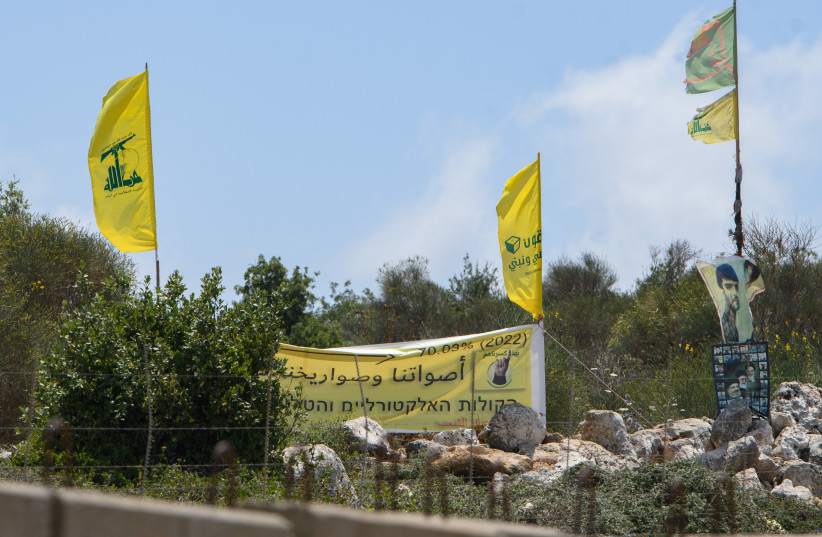Hezbollah is becoming more brazen in its attempt to show off its forces along the northern border with Israel. The latest incident involved Hezbollah once again showing off that it could wave flags and move supporters close to the border near the village of Ghajar in northern Israel.
This incident comes after months of slowly building tensions with the group, including tents it set up in the Mount Dov area, a new road near Kfar Chouba, and also attempts to demand Israel change the route of the border near Ghajar. Ghajar was only recently opened to tourism in Israel because it sits at a sensitive location on the border. Hezbollah knows this and wants to purposely create tensions in this area.
Hezbollah’s demonstrations are designed to provoke and make headlines
Its goal is to create incidents along the border with the backdrop of Hezbollah terror leader Hassan Nasrallah’s threats. For instance, Nasrallah made more threats over the weekend during a speech for the Shi’ite Ashura marches and holy events in Lebanon. The videos of Hezbollah supporters conducting brazen attempts to march near the border with flags, to even cause damage to the fence over the last months, and also to create conditions for the firing of rockets, all point to a very tense situation.
So far Hezbollah has concentrated these activities near Ghajar and also Mount Dov. The goal here is to create an image of Hezbollah “protecting” Lebanese land because Hezbollah claims this is “occupied.”

Hezbollah has laid down this gauntlet since Israel’s 2000 withdrawal, always claiming it has a right to continue to stockpile illegal weapons in order to “liberate” these areas. This is how Hezbollah justifies its existence. However, the group was distracted during the Syrian civil war, focusing on sending forces to Syria and also creating threats against Israel near the Golan in Syria. Now the group has, in a sense, come home to roost. It wants to plant its flag directly on the border and to continue to carry out these scenes along the border with the intention of then getting them noticed so that it can showcase its importance to Lebanon.
This also comes with a vacuum in power in Beirut and another financial scandal in Lebanon’s banking sector, which basically means Lebanon has no leadership and potentially no money either.
Therefore the Hezbollah provocations come at a time when tensions can grow because there are no real players in Lebanon, and there are no authorities. The UN appears unwilling to step in and fulfill its full mandate and Lebanon continues to see how much it can push the envelope on the border.
The clashes in the Ein al-Hilweh camp in Lebanon, in which Palestinians were targeted, also show that Lebanon is on the brink of worse violence. Hezbollah will want to exploit for its benefit and Iran.
